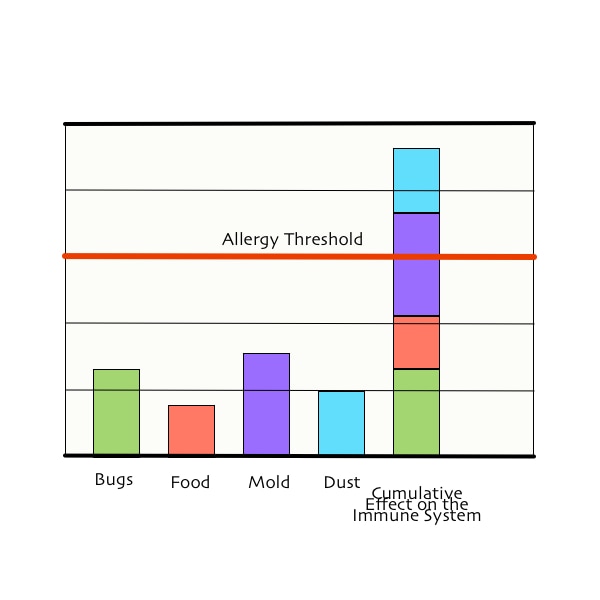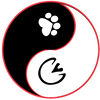|
Episode 297 Sweet Itch - what is it and how to treat it Summer is coming and so are the bugs ! Glenn and I discuss the cause of sweet itch, how to break the itch-scratch cycle and ways to control mosquitos, black flies and no see ums around your house and barn. The TCVM segment starts at 51:19 Sweet Itch: A summer nightmare for horses Sweet Itch aka Queensland Itch aka Culicoides hypersensitivity is one of the most common skin problem in horses and is also the hardest to treat. It is a horse owner's worst nightmare ! Sweet Itch is an allergy to insect bites. Mosquitos, black flies and no-see-ums have all been implicated as the cause of extreme itching and scratching which can lead to hair loss of at the mane,tail and belly, self trauma, and multiple open wounds with secondary bacterial infections. The saliva of these little blood suckers contains allergens that cause an intense itching. The horses will try to scratch on anything available to relieve the itch and in doing so can cause deep wounds and hair loss. Once the itching has begun, it is very difficult to control so preparation and prevention is key. The biological process is similar to hot spots in dogs which is caused by an allergy to flea bites. See my blog post about hot spots in dogs. Why do some animals have allergies to certain things and some do not ? The answer is that allergies are cumulative. You may have a tolerance for pollen and cats and dust if exposed to any one of those things alone, however, if you encounter all 3 at once, your immune system will over react. You will be pushed beyond your allergy tolerance threshold, your body will release inflammatory mediators like histamine and cytokines that cause watery eyes, itchy skin, hives, sneezing, coughing and if severe, may constrict your airway. The same is true in horses. They are exposed to lots of allergens in their daily life, mold, dust, pollen and bugs but when the swarms of biting flies emerge in the summer, they are pushed beyond their allergy threshold. Recognizing the symptom is key. The photos below show advanced stage disease. Let’s talk about prevention. Before the fly season begins you can prepare your horse and barn with some diet and lifestyle changes.
1. Reduce contact with Insects I know easy to say, hard to do. Most biting flies have a feeding pattern. Culicoides and gnats favor dusk and dawn while mosquitos are most active from dusk through early evening. Keeping your horse in the stable with a strong fan with plenty of fly spray may help. Fly sprays are short acting but can provide some relief. Some natural alternatives are Eco-vet and Repel which is made with Oil of Lemon Eucalypus. Gnats and no see ums are not strong fliers and will avoid the turbulence of a fan. When they do go out, fly sheets and face masks are a great help. To reduce the number of biting flies in your stable area you can reduce the breeding ground areas like stagnant water, long weeds and manure piles. A natural way to reduce emerging larvae is to treat ponds, streams and standing water with BTI aka mosquito dunks. Bacillus thuringiensis subspecies Isralensis, is a naturally occurring bacteria in soil. It produces toxins that only affect the larvae of mosquitos, blackflies and gnats. It is safe for all other animals, insects and plants and approved for pest control for organic farms. Spray BTI in ponds, use dunks in running water or drainage ditches. Make traps with bti in buckets of water with grass clippings or pulled weeds. Mosquitos and gnats will lay eggs there but they will never hatch. Goldfish and mosquito fish may be available from your county free. Dump water troughs every few days and some shell or gravel around the trough will prevent muddy puddles from becoming gnat nurseries. 2. Reduce contact with other allergens Mold and Dust are part of a horse's daily life. To reduce exposure, do not sweep or blow the barn aisle when horses are inside ! This is one of the worst things you can do to your horse's immune and respiratory system. Feed high quality hay and wet it down or soak it in a net for a few minutes before feeding. Do a full cleaning of the inside of the barn before allergy season. Inflammatory Foods processed foods and an unbalance ratio of omega 6 to omega 3 fatty acids tend to contribute to inflammation. Black oil sunflower seeds are high in vit E but have a high level of Omega 6. This ratio can be balanced to the ideal level of 1-4:1 (meaning approx 1-4 parts omega 6 to 1 part omega 3) by adding Chia seeds which are very high in Omega 3s. 3. Increase your horse's allergy threshold You can increase your horse's allergy threshold by increasing the levels of omega 3 fatty acids in the diet. As mentioned above, chia seeds are a great source of omega 3s and horses love them. Antioxidants can also help increase your horse's allergy threshold. Some foods therapy suggestions for horses are seaweed (kelp or spirulina), gogi berries, spinach, green tea, ginger and of course, Dr. Doug's favorite, turmeric. 4. Avoid Immuno-stimulants Vaccines stimulate the immune response to protect your horse from disease. Try to vaccinate early in the season before the emergence of biting flies. Killed vaccines and ultra purified vaccines do not cause as strong of an immune response as modified live and recombinant vaccines. So you have taken all the steps for prevention and your horse still has sweet itch. Now it is time to treat. Treat early in the course of the disease if possible when you first see the signs of hair loss and itching. The TCVM diagnosis is Wind (Itching) and Damp Heat (red crusty inflamed and infected skin) Acupuncture and Chiropractic Care can help reduce the itching and rebalance the immune system. To find a veterinarian trained in TCVM near you, search by your zip code at the Chi Institute page www.tcvm.com. Herbal Therapy includes formulas to Tonify the Blood to stop itching and Clear Heat. For Topical Treatment we recommend Dr. Ying's Sweet Itch Cream, a soothing blend of coconut oil, Chinese herbs and essential oils to relieve itching, soothe irritated skin, prevent secondary bacterial infection and repel biting insects. We also have 2 herbal formulas to be given orally for Sweet Itch. The TCVM diagnosis from your veterinarian will help determine which is the right choice for your horse. Damp Heat Skin Formula or External Wind Formula can help relieve the itching and inflammation in the skin. Food therapy is a very important part of the treatment. As mentioned above, omega 3 fatty acids and antioxidants need to be included in the diet. Foods that Tonify Blood and Cooling foods can be beneficial. Apricots and dates Tonify Blood, Barley, cucumber and green tea can Drain Damp and are Cooling. So as you can see, sweet itch can turn into a mid summer nightmare for you and your horse. Do your best to prepare for the season and change the things you can control. You don't need to do them all. If you live next to a creek or if the barn manager refuses to turn the horses out before they blow the barn, well ok you have to live with it but at least you can add some food therapy treats or some herbs or sneak some BTI into your neighbor's pond to get you one step closer to a happier, healthier summer.
0 Comments
Your comment will be posted after it is approved.
Leave a Reply. |
�
Dr. WendyPractices Traditional Chinese Veterinary Medicine in Sarasota, Florida Categories
All
Archives
December 2023
|
|






 RSS Feed
RSS Feed

